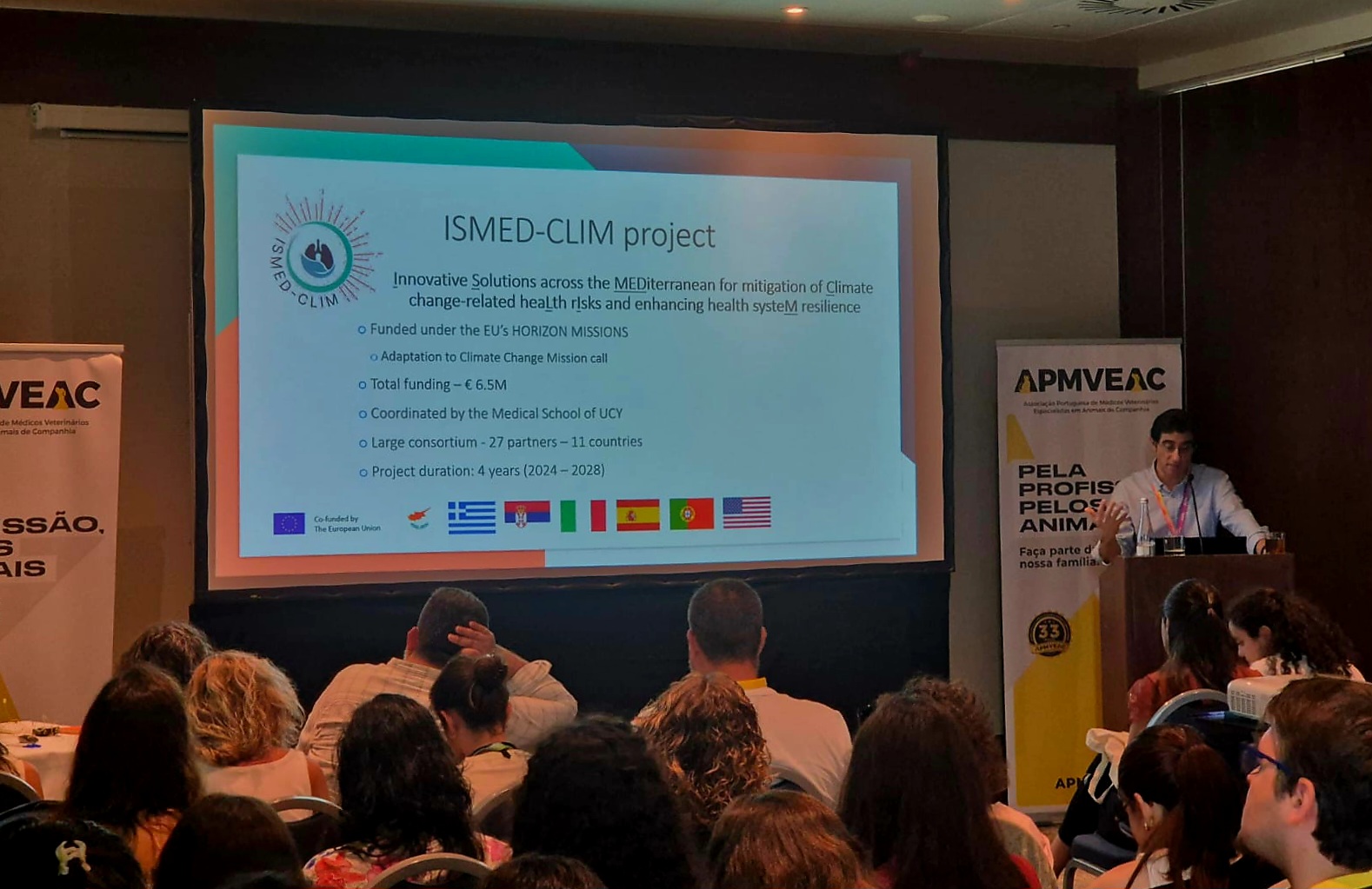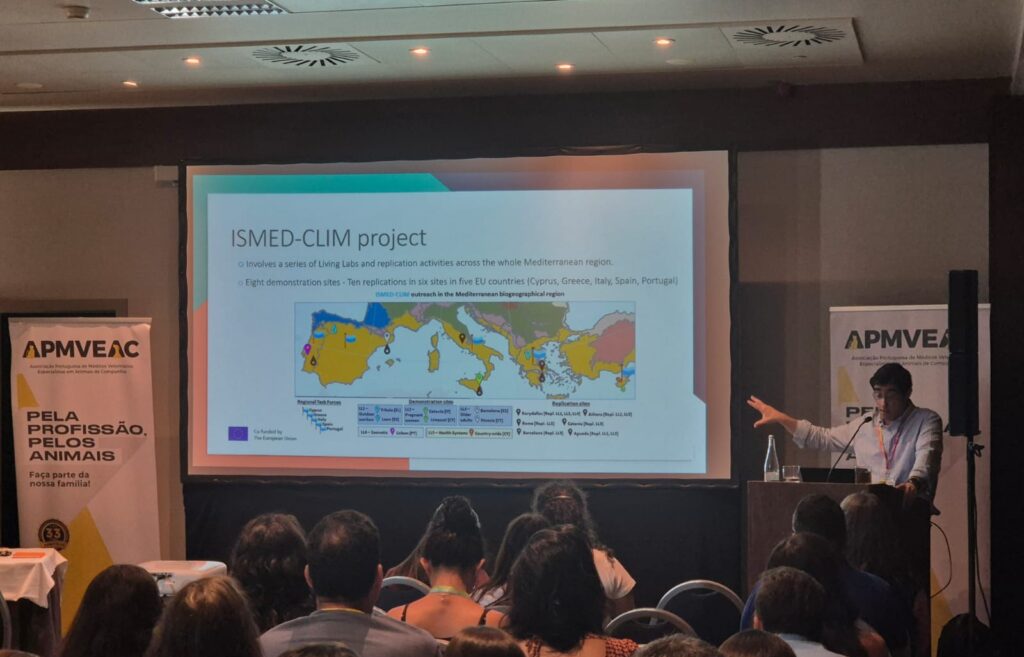ISMED‑CLIM Presented at the XXVIII National Congress of APMVEAC

On 21–22 June 2025, the ISMED‑CLIM project was presented at the XXVIII National Congress of the Portuguese Association of Veterinary Medicine Specialists in Companion Animals (APMVEAC) in Lisbon. This congress, focused on the intersection between internal medicine and diagnostic imaging, brought together veterinary and medical professionals to exchange knowledge and explore new approaches in animal and public health. Learn more about the event here.
Manuel Magalhães Sant’Ana, representing ISMED‑CLIM, shared insights into the project’s goals and activities, emphasizing the importance of climate change adaptation in both human and animal health across the Mediterranean region.
ISMED‑CLIM (Innovative Solutions across the Mediterranean for mitigation of Climate change-related health risks and enhancing health system resilience) is funded by the European Union under the Horizon Missions Programme. The project focuses on understanding and reducing climate-related health risks, bolstering health system resilience, and supporting vulnerable populations through a series of Living Labs and replication activities.
Key highlights from the presentation:
-
Climate impacts on health
ISMED‑CLIM is working to clarify how climate change affects non-communicable diseases and vector-borne infections in Mediterranean communities. -
Targeted interventions for vulnerable groups
The project develops personalized alerts and recommendations to reduce exposure to heat and air pollution for groups like pregnant women, outdoor workers, and older adults with hypertension. -
Vector-borne disease prevention in Portugal
In Living Lab 4, the focus is on sand fly–transmitted diseases (e.g., leishmaniasis). Veterinary teams, shelter staff, and dog owners are collaborating to design and pilot early-warning tools and prevention methods. -
Stakeholder engagement and co‑creation
Through workshops and working groups—especially in Porto and Lisbon—stakeholders contribute to refining tools and strategies, ensuring interventions are adapted to local needs.
Presenting ISMED‑CLIM at APMVEAC allowed the project to engage with veterinary professionals, promote data sharing, and encourage multidisciplinary collaboration on zoonotic and climate-related health challenges.

The congress showcased the value of integrated approaches in addressing complex health issues, underlining ISMED‑CLIM’s mission to improve resilience and preparedness across the Mediterranean.
To learn more about the Living Labs and demonstration activities that were discussed during the presentation, please visit the dedicated Living Labs page on the ISMED‑CLIM website.
